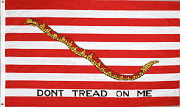The Washington Times has a front-page article today about new research into the Jeffersonian "wall of separation" between church and state. It turns out that it was not supposed to be as impermeable as our courts have made it out to be.
"What we have today is not really Jefferson's wall, but Supreme Court Justice Hugo Black's wall," said American University professor Daniel Dreisbach, whose forthcoming book explores how Jefferson coined the "wall" metaphor.Mr. Dreisbach's arguments parallel those of University of Chicago law professor Philip Hamburger, whose new book also says Justice Black's anti-Catholicism learned in the Ku Klux Klan influenced his 1947 ruling that the First Amendment created a "high and impregnable" wall between religion and government.
The two authors say the Founders did no such thing and that the "wall of separation" has become a "lazy slogan" for judges and politicians.
I do not understand the fear of people in this country who believe that posting the Ten Commandments on the courthouse square constitutes a state sponsorship of religion. My co-religionists protest too much when they make a Christian mountain out of an Old Testament molehill. If the Ten Words aren't the basis of Western Law, then we are in serious trouble. And we all know that the eminent jurists of the past paid homage to ancient lawgivers, including Moshe Rabbeinu. What was it P.J. O'Rourke said in Parliament of Whores?
Above the doors [of the House chamber] are medallions bearing bas-relief profiles of mankind's great and reasonably great lawgivers: Moses, Solomon, Alfonso X, Solon, Hammurabi, Pope Innocent III. No U.S. congressmen are included. Parliament of Whores, p. 50
Kind of speaks for itself.

